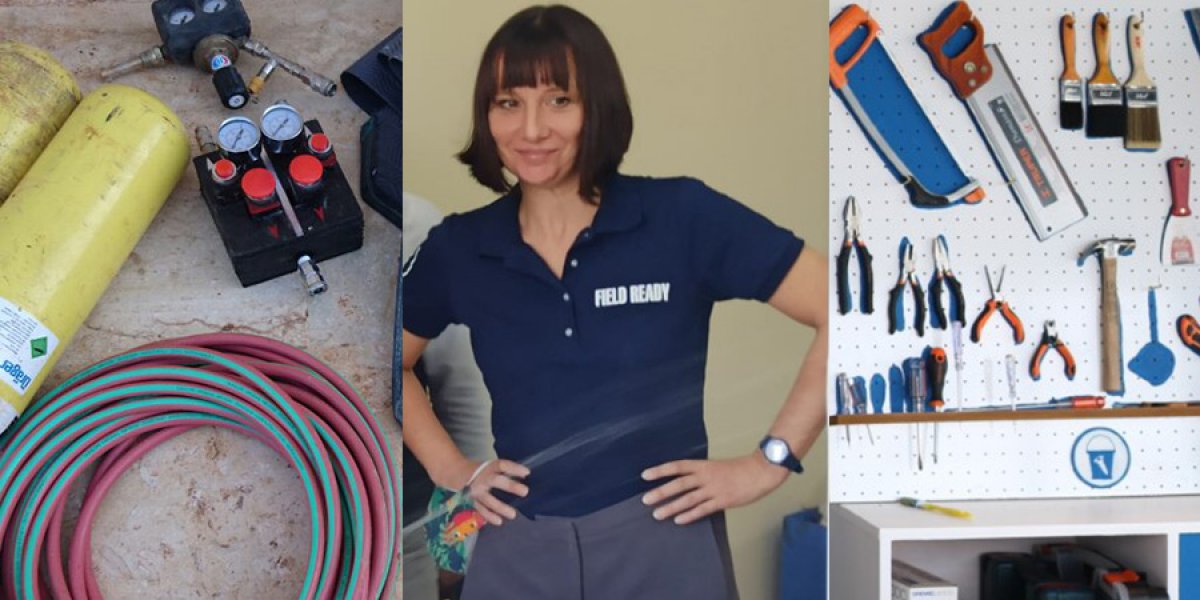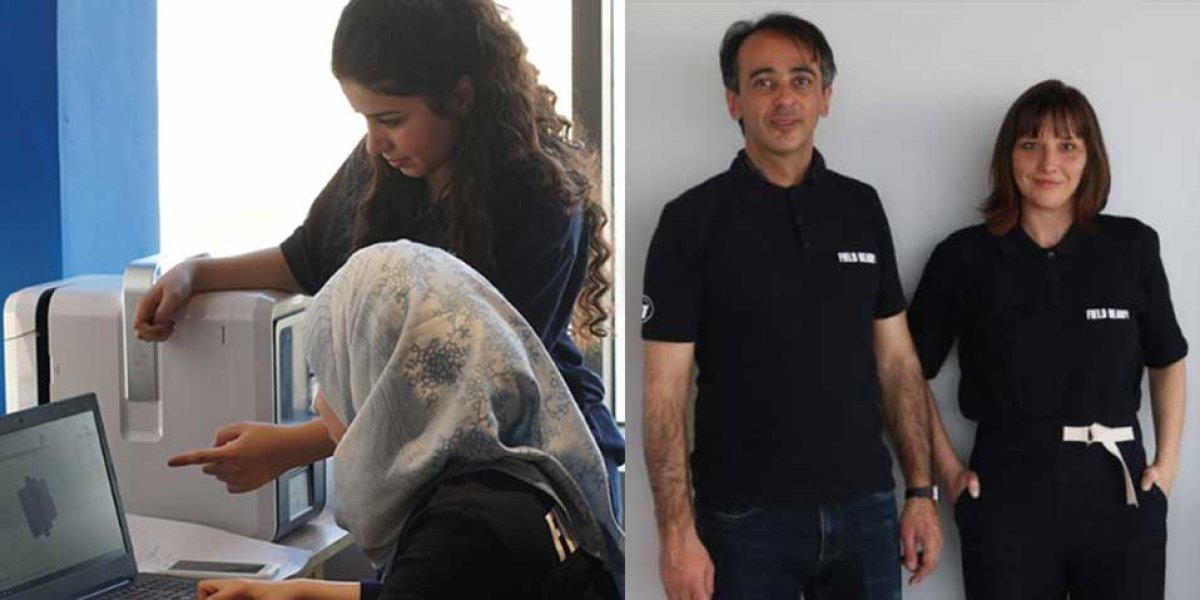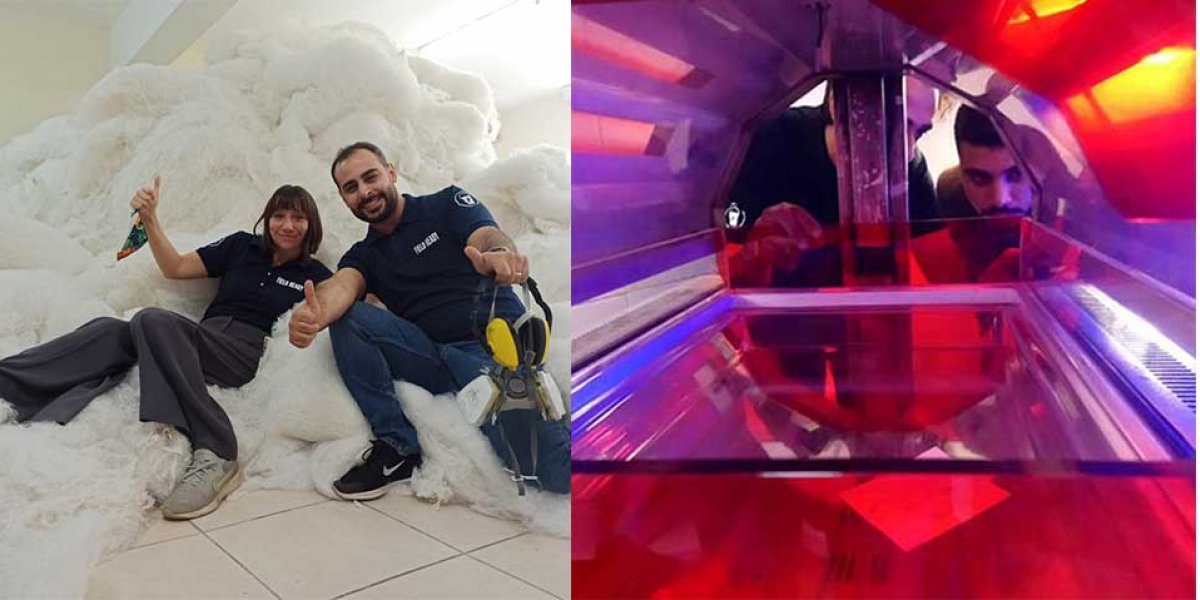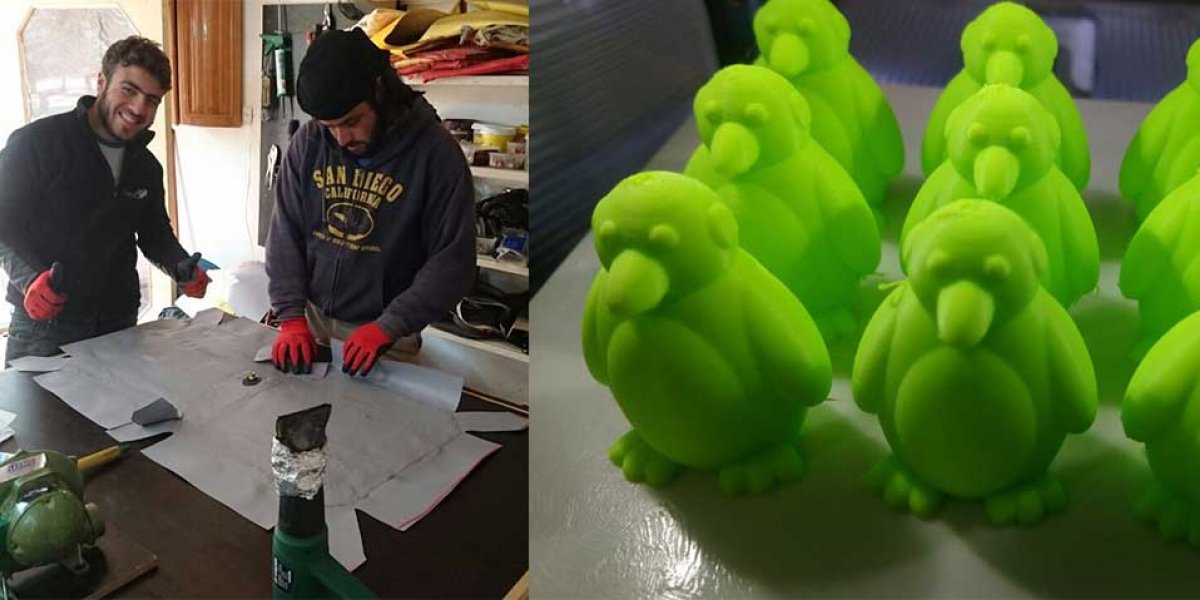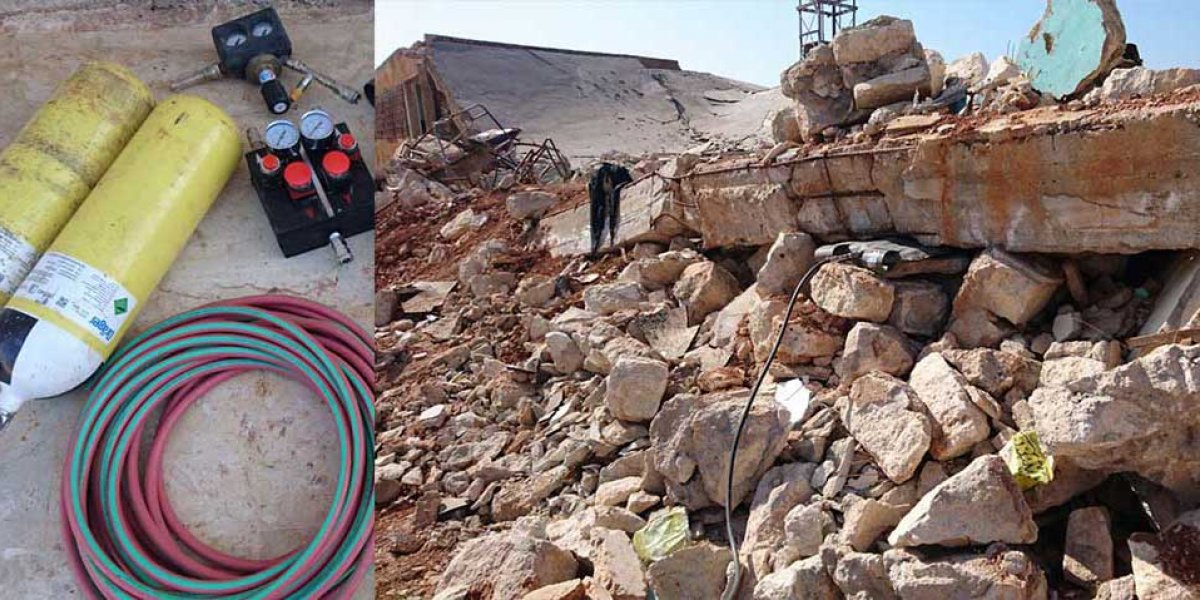Making a future for all – Susan Long
Susan Long (Robinson 2005) has always championed the social benefits of manufacturing. Throughout her career, she has brought revolutionary manufacturing technologies to some of the world’s most challenging environments. But wherever she works, Susan’s guiding principles remain the same.
“Having people make the things they need, where they need them. It’s still a brilliant idea.”
Susan Long
Growing up in Newcastle, Susan saw the impact of de-industrialisation firsthand. Later, Susan would see other societies across the world, each with a complicated relationship to industry. Countries like Kenya and Vietnam did not go through the same process of industrialisation, and missed out on the opportunities it created. In the Middle East, a mixture of state policy and constant conflict made it difficult to reap the benefits of industry. A common problem between these very different societies was what happened in the absence of industry, where a flood of social problems arose instead. To try and solve some of these problems, and explore the benefits of local manufacturing, Susan would need extensive training and hands-on experience in engineering.
Susan was first encouraged to apply to Cambridge by a family friend. He was already enrolled at the University, and when he came back home during the summer holidays Susan would catch up with him in her local pub. He told her how Cambridge was a fascinating place to be. Susan was initially put off the idea of applying, as she was worried she wouldn’t fit in. Eventually though, she decided: “You’ll be better to try it then to regret having not done so.” After her application was successful, Susan went to Robinson College to study Engineering.
Arriving at Cambridge
When Susan arrived at Cambridge, she found a place “big enough to build your own tribe”, where “everyone you study with has so much energy for other things”. Her next-door neighbour brought a show to the Edinburgh Fringe in the summer. Another fellow student was an Olympic sailor. At Robinson, Susan soon adapted to college life, even designing decorations for a few May Balls.
It was at Robinson that Susan found Engineers without Borders, a group that supported engineering students in developing projects overseas. Susan eventually became one of the society’s most prominent committee members. Through her involvement with the group, Susan attended regular speaker sessions and training weekends at Clare Farm and Newmarket.
As part of the Engineers without Borders group, Susan travelled to Ecuador to make ceramic water filters using local techniques. While the trip was insightful, Susan felt that the engineering solutions she could offer were a sticking plaster for the local people’s problems; the fundamental economic issues that governed their lives were not going away, and these issues had the most pervasive effect on people’s lives.
Partly because of these frustrations, Susan moved away from engineering after university. Seeking to understand the bigger drivers of international economies, she became a management consultant and worked in Kenya and Vietnam. But when one of her fellow committee members from Cambridge’s Engineers without Borders recommended a new opportunity with Field Ready, Susan was drawn into engineering once more.
Technology changes the game
By this point, rapid advances in technology meant that engineering projects in developing countries were no longer a sticking plaster: they could fundamentally change these societies and their economies. These new developments could now revolutionise production in some of the world’s poorest areas – most strikingly via distributed and local manufacturing.
These revolutionary technologies focus on digital fabrication – a group of technologies that includes 3D printing – and have dramatically reduced the space needed for complex manufacturing equipment. As a result, Susan explains, “you don’t have to have a big factory to produce essential goods anymore. You can set something up in your living room, or a garage in Syria powered by a solar panel.”
Susan’s time at Cambridge proved useful when she started working for Field Ready in the Middle East. She needed to know how factories run from start to finish. Cambridge’s manufacturing engineering course provided a holistic understanding of the entire production process. In her second year, Susan did placements in factories, where she and her fellow students were given specific tasks to do – for example, reducing waste in a given process.
“One of the biggest things I learned on these placements was the importance of HR in a factory. The happiness of your staff has a huge impact on productivity, even if large parts of the production line are automated.” From these placements on different factory floors, Susan could see which ones worked better. “It often came down to the divide between the factory floor and the management: when that gulf was bigger, there were more problems with equipment, more stoppages on the line. Going in as students, we heard directly what the workers complained about. We were worried about whether the workers would mind us coming into their environment, but they were happy to have someone listen to them. It became obvious what needed fixing and what processes weren’t working.”
Makerspaces in the Middle East
Susan is currently using the knowledge she gained at Cambridge to create Makerspaces in the Middle East, initially focusing on Iraq. Makerspaces are co-working spaces with in-built engineering equipment. Their staff provide expert training and encourage collaboration between different local groups. These Makerspaces allow members to design and manufacture a huge variety of things. Susan now gets to work with passionate, young people in the Middle East who want to master the latest technologies and fix the problems they experience in their communities.
“We give people training and access to 3D printers, laser cutters, and computer numerical control (CNC) machines. We’ve also fitted the Makerspaces with a lot of electronics: now, people can put electronic circuits together, and engrave whatever circuit board they want to have in whatever device they’re making.”
The possibilities for what someone can make with equipment like this is staggering. Entrepreneurs can craft supplies or artistic items. Educational groups can make items for people with disabilities – one group recently created a customised sensory environment for children with cerebral palsy. And when it comes to medical supplies, the opportunities for improvements can be drastic.
These became apparent when Susan first worked with Field Ready in Syria. “We made replacement springs for broken bone drills. We made hinges for incubator doors – small, simple parts: but if these break, the whole incubator is out of service.”
Once a community has trained engineers that can troubleshoot and diagnose medical equipment, these fixes are made possible. Distributed manufacturing makes this process far cheaper, more reliable, and less dependent on turbulent factors. “If the borders are closed, you can still make spare parts in your garage,” Susan says.
These benefits become international when ideas are shared. “A lot of our designs are hosted on online platforms that are open source. These could be designs for anything from an incubator handle to oxygen concentrators for COVID-19 response. People from across the world can download these designs, take them to their local Makerspace, and 3D print the components.”
In one of her most successful projects for Field Ready, Susan helped to research low-cost airbags for search and rescue in Syria. They are designed to inflate under the rubble of bombed-out buildings and enable trapped persons to escape. The airbags were then used in Nepal, after devastating earthquakes necessitated search and rescue. Soon, people in Mexico were using the same airbag design for their earthquake search and rescue teams.
Beyond the technical solutions made possible by these technologies, their decentralised nature grants local economies a tremendous amount of power and independence. Instead of being reliant on international aid, these communities can now take their problems into their own hands. By giving state-of-the-art technology to intelligent, energetic local people, they can be the ones to make the difference. So, while Field Ready began as a way of providing humanitarian relief, it has become a way to allow communities to generate and keep wealth, by supporting local business and entrepreneurs.
Susan’s dream of using manufacturing for social good – an idea born in Newcastle and nurtured by her time at Cambridge – has come to fruition.
“This technology is a massive equalizer. You don’t need an expensive lab. You don’t need to rely on parts being flown in from overseas, you don’t need to pay other countries for the parts you need. You get to keep the money in the local economy. You’re empowered to fix problems you see around you, and can learn from those in similar positions across the world.”
